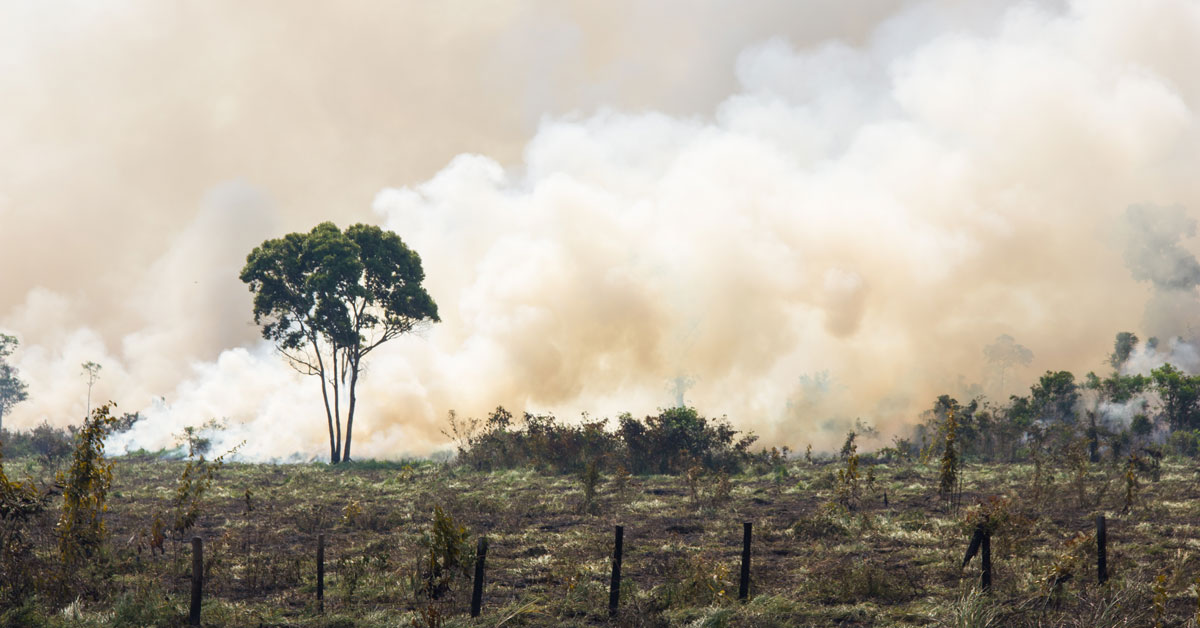
Ecosystems are thrown out of balance by human intervention
The risk of disease outbreaks including pandemics increases the more nature is destroyed, said German Federal environment minister Svenja Schulze at a press conference given in collaboration with scientists. The minister said that committed nature conservation in many regions of the world is thus key to preventing new infectious diseases.
The exact transmission route of the novel coronavirus from animals to humans has not yet been established. However, it is well documented that around 70 per cent of the human pathogens originate from animals, including HIV, Ebola, influenza, MERS and SARS. The risk of transmission is particularly high at wildlife markets where people come together with different species in a confined space and where animals are kept penned up under unacceptable hygiene conditions. But in the view of the scientists at the press conference, there is an even more fundamental risk of animal to human transmission when ecosystems are thrown out of balance due to human intervention.
Federal environment minister Schulze said: "Now is the time for acute crisis management. There will be a post-pandemic world. By then, at the latest, we need to have understood the causes of this crisis, in order to better prevent a similar scenario in the future. Science tells us that the destruction of ecosystems makes disease outbreaks including pandemics more likely. This indicates that the destruction of nature is the underlying crisis behind the coronavirus crisis. Conversely, this means that good nature conservation policy that protects our diverse ecosystems is a vital preventive health care measure against new diseases. I would appreciate it if IPBES [Intergovernmental Science-Policy Platform on Biodiversity and Ecosystem Services] ascertained the global level of knowledge on these issues, collated the information and made it available to policymakers throughout the world. The international community has the opportunity to adopt a new global biodiversity strategy after the pandemic – and thus to show that is has learned from the pandemics of the past."
Sandra Junglen, leader of the working group Ecology of Emerging Arboviruses at the Institute of Virology, Charité University of Medicine, Berlin said: "The emergence of multiple diseases can be explained by human encroachment into previously untouched nature. Intensive land use, prevalence of monoculture and clearing of forests lead to biodiversity loss and change the composition of mammal populations. Biodiversity loss means that more animals of one species share the same habitat. When the ecosystem is thrown out of balance, infectious diseases can spread more easily. Biodiversity and functioning ecosystems can help prevent the spread of infectious diseases."
Professor Josef Settele from the Helmholtz Centre for Environmental Research – UFZ, co-chair of the IPBES Global Assessment Report, noted: "Despite some questions remaining, the global state-of-the art in science undoubtedly shows: The conservation of intact ecosystems and their characteristic biodiversity can reduce the emergence of infectious diseases. Humanity depends on functioning, diverse ecosystems. By destroying ecosystems we are also destroying our livelihoods, as the coronavirus epidemic is showing. That is why we have to join together and commit to transforming our society to protect our foundations of life. The IPBES Global Assessment Report highlights the key aspects of such a transformation. What is needed here is no less than a fundamental, system-wide reorganisation, covering technological, economic and social factors, including paradigms, objectives and values."
IPBES stands for the Intergovernmental Science-Policy Platform on Biodiversity and Ecosystem Services. It is comparable to its sister organisation, the Intergovernmental Panel on Climate Change (IPCC).









